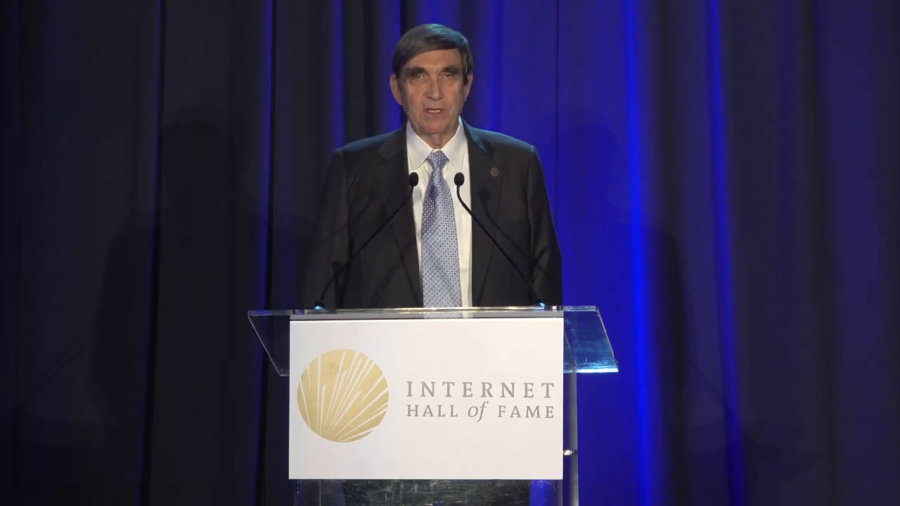Douglas Comer: Well there are lots of people I would like to thank. I thank the advisory board for inducting me. I thank, way back, Peter Denning and Larry Landweber for including me on the CSNET project that got it all started for me.
They made me in charge of protocols at a time when I knew very little about protocols. I talked to Vint Cerf about what to do and we needed to build a network to get across all computer science departments and we didn’t have enough money to afford a new backbone. So, we decided to use X.25, an existing public service that we could use to transport data from one site to the other.
And I explained to Vint, I didn’t know how to do protocol translation, which was the way everybody did it those days. And so I decided to use something that became known as tunneling. I thought I was pretty well set. They approved it. Then we sent in the CSNET proposal, and the National Science Foundation had anonymous reviewers review the proposal. And they came back with very negative reviews.
Now some of them didn’t bother me at all. They said for example this is a multi-institutional grant with multiple institutions running budgets, we’re gonna have to do acquisitions, and nobody on this project—it’s just a bunch of professors—nobody has had any real program management experience. There oughta to be a real program manager.
That didn’t bother me because I really didn’t know about budgets and how to acquire equipment and lines and…that was okay. But, they also singled out my part. They said, point blank, that idea about putting IP packets over X.25 will not work. You can’t do it that way.
Now, I was an assistant professor at the time. I was gonna come up for tenure. As you can imagine, I didn’t want to have a black mark on my record. I had nothing to back me up except a hunch that it would work. So, I dug in. I said to myself I better find out about these protocols. What do these experts know that I don’t?
I worked and worked and worked. I studied all the protocols—not just individuals but I study how they interacted together. I thought about routing, I thought about addressing, I thought about corner cases. I thought about maybe we should do an implementation, so I implemented the protocols, put ’em across my tunnel… Well a few years later, it all turned out to worked just fine.
But, that study had a profound impact on my career and on my books. When it came time to write the books, I already knew first-hand all about the protocols. I had studied them so intently that I understood corner cases, I understood how to implement them, I understood what not to do. So I boiled down all the principles, all the details, and all my findings about protocols and put ’em into books. And I have always thought that that’s one of the key reasons that my books were so wildly successful. Because they weren’t just some professor writing a textbook, they were from first-hand experience.
So, my final thanks for intimidating me into studying protocols goes to those obnoxious and absolutely incompetent NSF reviewers who forced me to study.
Further Reference
Internet Hall of Fame profile
